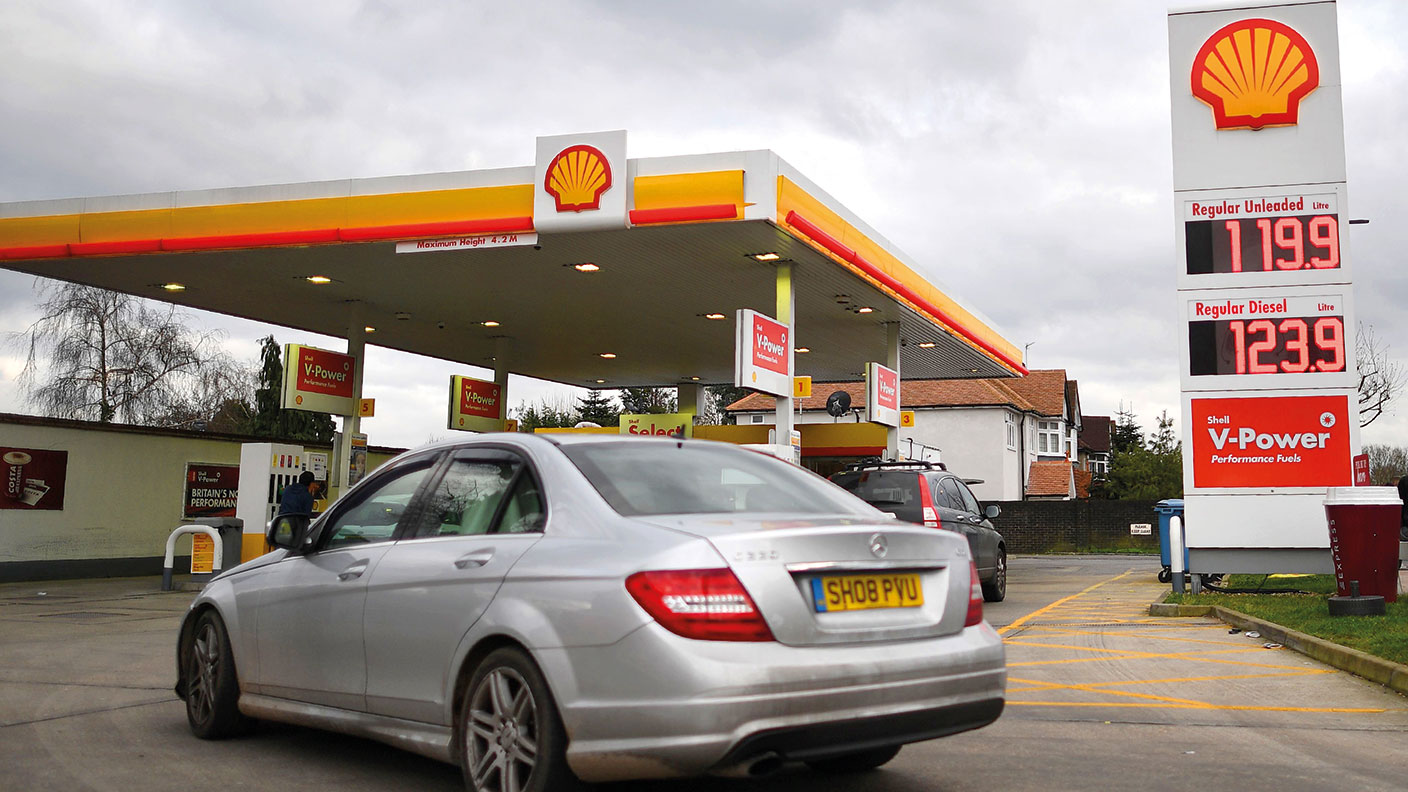Company in the news: Royal Dutch Shell
A shock profit warning from Royal Dutch Shell has taken the City by surprise. Phil Oakley explains what that means for investors.
Get the latest financial news, insights and expert analysis from our award-winning MoneyWeek team, to help you understand what really matters when it comes to your finances.
You are now subscribed
Your newsletter sign-up was successful
Want to add more newsletters?
Anglo-Dutch oil giant Royal Dutch Shell (LSE: RDSB)shocked the City with a profit warning last week. Some of the problems it discussed, such as loss-making shale gas projects in America and ongoing issues with oil theft in Nigeria, are not new.
However, Shell is also now making less money from refining (turning oil into other products) and selling petrol. Some of its high-value oil and gas fields have suffered from higher-than-expected costs and have been producing less than hoped too.
Yet it's always a good idea to watch the City's reaction to these sorts of warnings, and the reality is that no one seems to be particularly concerned the shares really haven't fallen much. So you can't help thinking that the new chief executive Ben vanBeurden is doing some clearing of the decks now so that lifemight be a little easier for him later on.
Try 6 free issues of MoneyWeek today
Get unparalleled financial insight, analysis and expert opinion you can profit from.

Sign up to Money Morning
Don't miss the latest investment and personal finances news, market analysis, plus money-saving tips with our free twice-daily newsletter
Don't miss the latest investment and personal finances news, market analysis, plus money-saving tips with our free twice-daily newsletter
That said, Shell has a lot of work to do as it continues tounderperform its peers. It needs to stop spending money andfocus on getting more cash through the door. The companyknows this and is on the case.
It has some good assets, strongfinances and a decent dividend, which analysts expect to bemaintained. Providing oil prices stay between $80 and $100per barrel, Shell could be generating lots of surplus cash in acouple of years' time. This is not the time to sell.
Verdict: buy for dividends
Get the latest financial news, insights and expert analysis from our award-winning MoneyWeek team, to help you understand what really matters when it comes to your finances.
Phil spent 13 years as an investment analyst for both stockbroking and fund management companies.
-
 Three Indian stocks poised to profit
Three Indian stocks poised to profitIndian stocks are making waves. Here, professional investor Gaurav Narain of the India Capital Growth Fund highlights three of his favourites
-
 UK small-cap stocks ‘are ready to run’
UK small-cap stocks ‘are ready to run’Opinion UK small-cap stocks could be set for a multi-year bull market, with recent strong performance outstripping the large-cap indices
-
 Britain’s most-bought shares w/e 12 August
Britain’s most-bought shares w/e 12 AugustNews A look at Britain’s most-bought shares as of 12 August, providing an insight into how investors are thinking and where opportunities may lie.
-
 Should you be worried about energy windfall tax proposals?
Should you be worried about energy windfall tax proposals?Analysis Calls have been growing for a windfall tax on UK oil and gas producers. It's a popular idea, but is it a good one? And what does it mean for investors in the UK's energy companies? Rupert Hargreaves explains.
-
 The outlook for Shell shares is mixed, despite bumper profits
The outlook for Shell shares is mixed, despite bumper profitsAnalysis With profits surging, it looks as if Shell is on a roll, but the company’s growth from here is hard to see as Rupert Hargreaves explains.
-
Share tips of the week
Tips MoneyWeek’s comprehensive guide to the best of this week’s share tips from the rest of the UK's financial pages.
-
 Investors can no longer be sure of Shell
Investors can no longer be sure of ShellNews Oil giant Royal Dutch Shell, one of the market’s most reliable income providers, has cut its dividend for the first time in over 70 years. Matthew Partridge reports.
-
 The Shell BG deal will be the first of many – which oil giant is next?
The Shell BG deal will be the first of many – which oil giant is next?Features Shell's takeover of BG Group will spark a wave of mergers in the energy sector. John Stepek asks – who will be next?
-
 Today’s profit warning looks like a good time to buy Shell
Today’s profit warning looks like a good time to buy ShellFeatures Shares in Shell took a hit after the company's profits warning. But that doesn't mean you should sell, says Antonia Oprita. In fact, now may be time to buy.
-
Three stocks to buy with future income in mind
Opinion Professional investor Ben Ritchie picks three robust stocks that should generate a sustainable and growing dividend for future income.